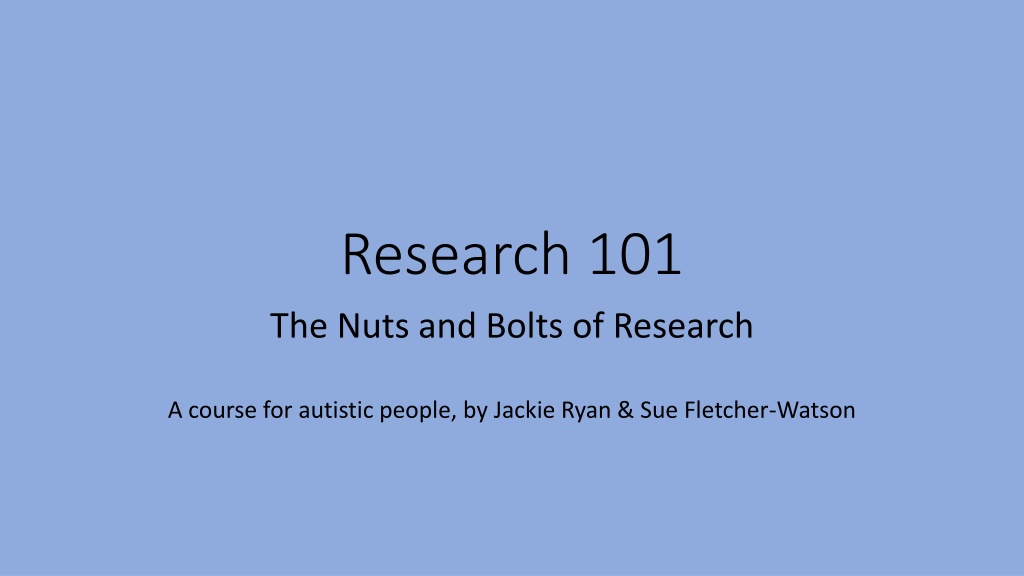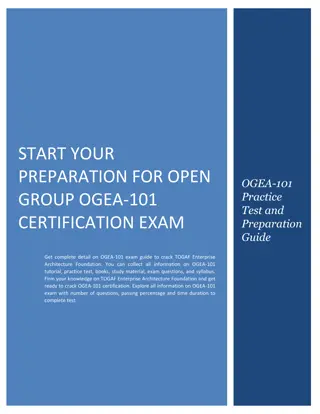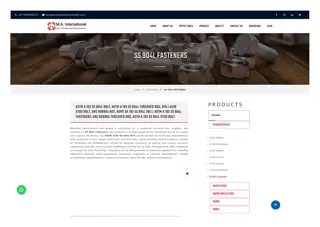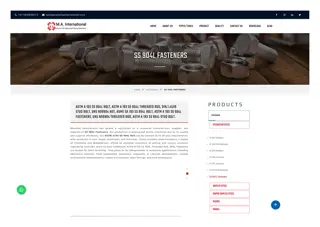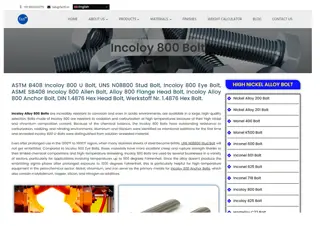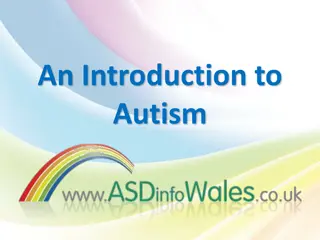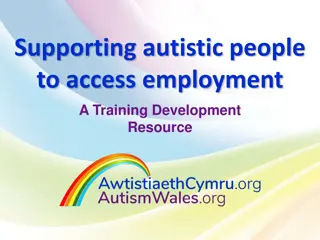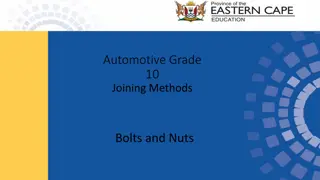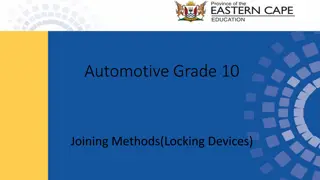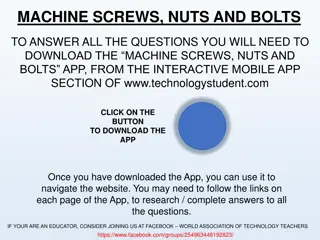Research 101: The Nuts and Bolts of Research – Empowering Autistic Individuals
This course, led by Jackie Ryan & Sue Fletcher-Watson, aims to empower autistic individuals to engage effectively with research that impacts them. It focuses on educating participants about their rights, fostering shared knowledge, and demystifying research processes. The course includes activities like defining terms, setting ground rules, and providing resources for informed consumption.
Download Presentation

Please find below an Image/Link to download the presentation.
The content on the website is provided AS IS for your information and personal use only. It may not be sold, licensed, or shared on other websites without obtaining consent from the author. Download presentation by click this link. If you encounter any issues during the download, it is possible that the publisher has removed the file from their server.
E N D
Presentation Transcript
Research 101 The Nuts and Bolts of Research A course for autistic people, by Jackie Ryan & Sue Fletcher-Watson
Research 101 Day One: Informed Consumer
Welcome & Why are we all here? The vision behind the course To empower autistic people to engage more effectively with the research that affects them To ensure autistic people know their rights as participants To facilitate participatory working by moving towards a shared knowledge base To demystify the research establishment What we did to plan it Chatted to my autistic mentors Sue and Jackie fortuitously met! Surveyed autistic people within / outside research and non-autistic researchers on content and delivery
What are we going to do? What s coming up today? What does informed consumer mean? Hand out packs Notebook and pen Detailed schedule & handouts Lanyards with name card & coloured interaction stickers [write up what these mean] Bowl of fidgets Talk about how to participate, ask questions etc. Texts, notecards, raising a hand Work alone, as a group, in pairs
Glossary We will create it as we go along if you hear a word or an acronym you don t know and want to know pass a card to Jackie Text Jackie Raise your hand to ask We will write definitions up on the wall as we go, and you can add them to your notebooks
Ground Rules Please be respectful and polite, even when talking about researchers who aren t present Use identity-first language, except when not your personal preference Everyone has permission to stim Quiet spaces: hallway outside, Sue s 5thfloor office, Toilets: ground floor, second floor accessible Fire alarms and fire exits: none planned today, two staircases Talk about catering: what are we eating and when? When to ask questions: interrupt for a point of clarification, otherwise wait for discussion sections Check slide design and contrast levels Is there anything else we need?
Who are we? Introduce Jackie pronouns, background, neurotype Sue, as above Billie, as above Rachael, as above Shereen, as above
Who are you? Invite people to introduce themselves if they want to Please aim to take just 1-2 minutes each Your name Your pronouns Your background experience with research, reason to be on the course Your neurotype
Day One Schedule Informed Consumers 9:00am: 10:20am: Break 10:50am: Literature reviews and Methods 101, panel 12:10pm: Lunch 12:50pm: Statistics, lecture and activity 2:10pm: Break 2:40pm: Reviewing Research Outputs, lecture & activity 4.00pm: feedback forms & goodbye The Basics
1.1 Learning Objective to gain a general understanding of the research cycle, key terms, and a framework for evaluating the quality of research.
What is research? Finding out new things in a systematic way Creating new knowledge by Seeking existing information and combining it in new ways Creating brand new information Hallmarks Replicable (you can copy it) Transparent (you can copy it) Systematic (you can copy it)
Examples of research How do teachers support autistic pupils in school? Review governmental and school policy and training documents to determine hallmarks of correct support Review academic literature on studies that have interviewed teachers, to extract common themes Observe teachers directly and analyse their behaviour Send a survey to autistic pupils Analyse linked school records and health records to look at attainment in pupils with / without an autism diagnosis Design a new way of supporting autistic pupils and evaluate it
The difference between research and practice Research Groups & Averages Ideal world (?) Assumptions Replicable Generalisations Recommendations Peer reviewed Practice Individuals & Specifics Real world Constraints Bespoke Targets Solutions Inspected
The research- practice gap Funded research project Data collection and analysis Research publishing articles, going to conferences media, public lectures Disseminate training delivery workable products Implement
A typical project timeline review, design, ethics: 3-6 months Idea: 1 month - 10 years application: 3-9 months recruitment, set- up: 3 months implementation: -6 months publication: 6-12 months analysis: 1-10 months data collection: 3-36 months
A typical PhD project Review the literature what do we already know? Refine questions and hypotheses Design the study Best measures Budget, resources Pilot the method Collect data Design and perform analysis Write up thesis Review the literature Study 1: practitioner survey Design Ethics Data Analysis Publication Study 2: development of method Study 3: outcome-focused Write up thesis
A larger scale research timeline Intervention design Pilot trial publication Basic findings 10 years 1-2 years 3 years 1 year publication clinical trial seek funding implementation??? 1 year 3 years 4 years
Funder strategy What research gets done? Demonstrable need / open question Applicant expertise Available resources
Who does the research? Connecting expertise, literature and resource Pressure to publish, and publish well Demonstrable expertise The Research Excellence Framework 6-yearly evaluation of research quality and quantity Dictates government block grants to Universities Big influence on employment
What are research careers like? 6 month RA job, maternity leave Masters degree PhD Viva & postdoc 2003-2004 2004-2007 2008 2009-2010 Chancellor's Fellowship Fellowship, maternity leave Chancellor's Fellowship 2014- 2019 Permanent job 2019 2013-2014 2010-2013
What are research careers like? Dr X 1. PhD graduation in 2017 2. 6 month RA job with former supervisor, part time + some teaching work 3. 2 year postdoc, 80% FTE (i.e. four days per week) + 4 months 10% FTE on a big grant helping get set-up + 10 months 10% FTE on her own seedcorn grant 4. 10 month Fellowship, 60% FTE + 9 month 20% FTE on her own seedcorn grant
The researcher experience Precarious contracts Running a project while applying for the next one Disseminating the last project while launching the next one High expectations: papers, conference presentations, Low grant success rates Stress and anxiety Student-supervisor or collaborative relationships
Why is this a problem? Research ideas not followed through Participatory working easily disregarded Career anxiety shifts focus onto CV targets (and away from quality) Academic ill health drains the system Workload
Ideas, proposals Dissemination, implementation Active, data collection NDIQ: Diversity in Social Intelligence MRB clinical trial more worth talking about Residential care for older adults Autism & bilingualism: longitudinal getting closer to project completion
Ideas, proposals Dissemination, implementation Active, data collection more worth talking about Mark Kabie: autistic parents Shereen: autism, bilingualism, EF Billie: autism, bilingualism, perspective taking Mihaela: autism, tech , pretend play Ruth: autism, instrument learning Maggi: autism, tech, play getting closer to project completion
Ideas, proposals Dissemination, implementation Active, data collection Eye-contact project BETA: building evidence for tech in autism more worth talking about NESTA diagnosis app I-SOCIALISE getting closer to project completion
Ideas, proposals Dissemination, implementation Active, data collection Learning about research more worth talking about External collaborator guidance Autistic staff and students Radical No ADOS consortium Early Life network getting closer to project completion
Ideas, proposals Dissemination, implementation Active, data collection Teaching neurodiversity in primary schools Processing ET data: bottom up vs. top down Autism language Survey more worth talking about Smooth Sailing intervention SMRC research programme Peer support projects getting closer to project completion
Ideas, proposals Dissemination, implementation Active, data collection Teaching neurodiversity in primary schools Learning about research NDIQ: Diversity in Social Intelligence Eye-contact project MRB clinical trial Processing ET data: bottom up vs. top down BETA: building evidence for tech in autism Autism language Survey more worth talking about NESTA diagnosis app I-SOCIALISE External collaborator guidance Smooth Sailing intervention Residential care for older adults Mark Autistic staff and students Autism & bilingualism: longitudinal SMRC research programme Peer support projects Radical No Kabie: autistic parents Shereen: autism, bilingualism, EF ADOS consortium Early Life network Billie: autism, bilingualism, perspective taking Mihaela: autism, tech , pretend play Ruth: autism, instrument learning Maggi: autism, tech, play getting closer to project completion
Ideas, proposals Dissemination, implementation Active, data collection WT translational neuroscience PhD Pathfinder: MH data science more worth talking about TEBC: preterm infant follow-up SMRC research programme Professional services CSP SYNGAP deletion: characterisation Bethan: social cognition, prematurity Alexandra Sin ad: gesture, language, SES, prematurity Lorna: stress, attention, prematurity getting closer to project completion
Would you be interested to see my CV? If so, click out and show it
Intersectionality in Universities Like any high-pressure environment, marginalized and disadvantaged groups are squeezed out of academia We have problems with Gender pay gap and gender balance in top roles Additional BME pay gap Exclusion / hidden status of LGBTQ+ groups, especially in STEM
The UCU strike as an example 15% gender pay gap Casualisation of the work force 20% drop in salaries in real terms comparison with other industries Average working week >> 35 hours Pensions: increasing contributions 40k, decreasing payout 200k
What does all this mean for autism research? discussion
Lessons for Informed Consumers Research is heavily constrained By time By funding By expertise By barriers Research is slow, and often behind the curve Research is good at making generalized statements, not specific recommendations
Take-home messages Hold the supervisor accountable, not the student Look at the last as well as the first author (in medical research) We look powerful, but we feel vulnerable Not everything we do is a real choice
1.2 Learning Objective To gain a general understanding of the quantitative and qualitative research paradigms, how/why they are chosen, and the realities of conducting research. Panel discussion, with script by Jackie
1.3 Learning Objective To have a general understanding of statistics and be able to interpret statistics in a research paper.
